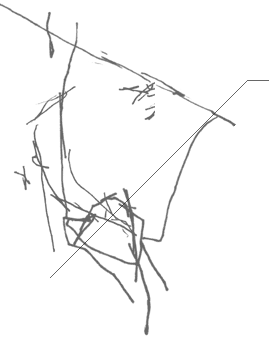Tuesday, March 3, 2026 |
||

|

by Michael Goldberg
Monday, April 8, 2002
The Rock Critic
Why do we pursue this often-thankless 'profession'?
|
|||
|
While I'm sure there are professions that are stranger, devoting
one's life to being a "rock critic" is certainly one of the odder
pursuits.
Since there was no "rock" before the early '50s, "rock critic" is a fairly new profession. Not as new as, say, Web designer or Webmaster or programmer or other tech/Web-related jobs, but still, in the context of thousands of years of history, it's as if the "rock critic" job was invented yesterday. It's one of those things that is, well, quite amorphous. For starters, most rock critics don't make a living solely from writing reviews. Most write on a freelance basis. Some teach, and write reviews on the side. Some work in record stores and write reviews on the side. Some are jack-of-all-trade music journalists who divide their time among features, interviews, books, liner notes, record company bios and reviews. When reading a review, you frequently don't know the context, why this particular writer has written about this particular album. Did the writer ask to review the album after spending days listening to it? Was it one of dozens suggested, something the writer only acquired after landing the assignment? Did an editor call the writer and ask for a review within a day? Is the writer a "pro" who cranks out reviews of a certain quality rapid-fire because that's part of the job (as a staff writer) or because that's the only way to make money writing reviews (as a freelancer working for a publication that pays)? I recall one writer at a major daily newspaper telling me that he listened to an album once or twice before writing a review. Compare that to another writer who told me she'd listened to an album she was reviewing "probably about 100 times." Then there's the issue of what aesthetic, exactly, the reviewer is coming from. And on what, exactly, is the reviewer basing opinions about the album? One could, for example, focus on the clichéd-at-times lyrics and pan the recent N.E.R.D. and Kelis albums. Or one could, as I did in a recent column, rave about the music and the sound — and mostly just ignore the lyrics. For some critics (and listeners), it's all about the lyrics. Great lyrics, for them, will make up for "bad" singing or a tired melody. But are those writers doing the listener a disservice? I know many folks who don't pay attention to lyrics, who simply react to the sound of a song. This is, in fact, how I initially respond to what I hear — does the sound grab me? Right now, I'm listening to a John Martin anthology, Sweet Little Mysteries. I've heard this particular song, "Head and Heart," hundreds of times. Martin is an artist from the early-to-mid-'70s (I mean, he's still around, but that's when I was into his music) who meant (and still means) a lot to me. Yet I've never closely examined the lyrics to that one, nor to "Bless the Weather." Just the sound of his voice and the wonderful music creates an atmosphere that I love. What, exactly, is the role of the rock critic? Some, like Robert Christgau, literally set themselves up as providing the "consumer" with a "guide" to what's good and what isn't. Yet within the framework of very short reviews, Christgau provides some insight into the albums he critiques. Entertainment Weekly takes it a step further in the guide direction — one doesn't look to EW for great insight into John Vanderslice's Life and Death of an American Fourtracker. At a time when tens of thousands of albums are released each year, music fans rely on critics to sift through all that, the "noise," and find the gems worth their attention. But if all we critics were to do was act as a filter, I would be greatly disappointed. More and more, I look to the music critic to enlighten me in some way. To tell me something I missed about the album, even if I'm already familiar with it. Or to provide a perspective different from my own. I want them to reveal to me something of their experience of the music, of the art. |
||||